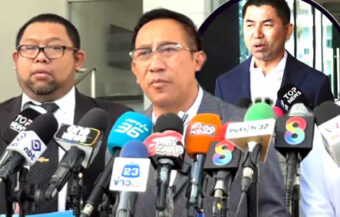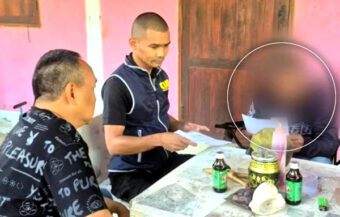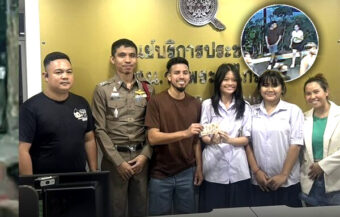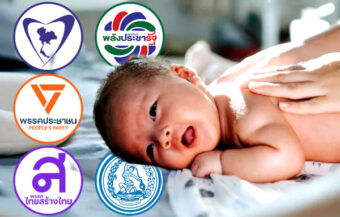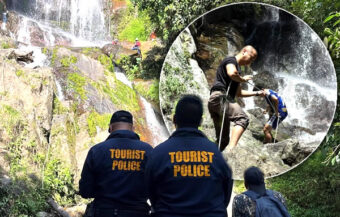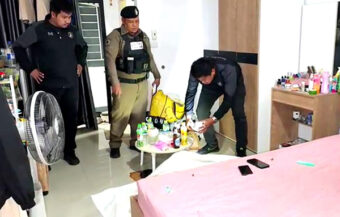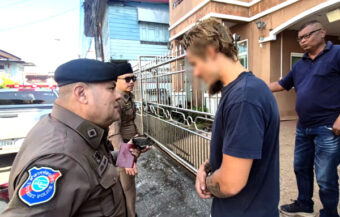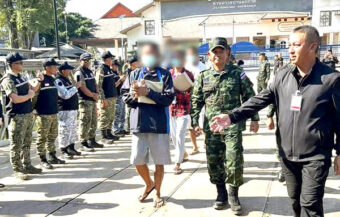The Thai-Cambodian conflict and outdated 2012 martial law in Trat triggered mass cancellations on Koh Chang, Koh Mak, and Koh Kood, forcing UK insurers to drop coverage and causing the islands to lose an estimated ฿700 million in tourism revenue.
The Thai-Cambodian border conflict has hit Trat’s tourism hard—even though the province is far from the fighting. New Foreign Office advisories exposed Trat has been under martial law since 2012, prompting UK insurers to drop coverage for visitors. The result: mass cancellations, empty resorts, and an estimated ฿700 million in lost revenue. The problem isn’t danger—it’s perception. Unless Bangkok lifts the outdated order fast, Trat’s paradise islands could pay the price this high season.

The Thai-Cambodian border conflict has begun to cast a shadow over Thailand’s tourism industry. Although fighting has remained limited to isolated frontier zones, global headlines have amplified concerns. As a result, Thailand’s reputation as a safe destination is under strain at a crucial time for recovery.
Trat in Southeastern Thailand borders Cambodia and the Cardamom Mountains, with a beautiful coastline on the Andaman Sea. It also includes idyllic and popular tourist islands such as Koh Chang, Koh Mak, and Koh Kood. These are particularly popular with Western long-haul tourists, especially from the United Kingdom and Europe.
For months, media reports have highlighted rising military tension along the eastern border. Consequently, Western governments have responded with new travel advisories. These warnings urge citizens to avoid areas within 50 kilometres of Cambodia. While meant as cautionary measures, they have triggered unexpected damage to Thailand’s long-haul tourism market.
UK travel warnings expose martial law in Trat and threaten tourism on Koh Chang, Koh Mak and Koh Kood
British travellers have been hit especially hard. The UK Foreign Office now advises against all but essential travel to Trat province. Because of this, thousands of tourists have found themselves unable to obtain insurance for visits to Koh Chang, Koh Kood, and Koh Mak—three of Thailand’s most popular island destinations.
At the heart of the problem lies a little-known legal measure. In 2012, Thailand declared martial law across the entire province of Trat following a border security incident. The declaration was never lifted. Although it has had no visible effect on local life, the law still applies in full force. To Western insurers, this signals instability. To local tourism businesses, it has become an economic disaster.
The issue came to light after Jan Robinson, a British citizen and frequent visitor to Koh Chang, contacted the Tourism Authority of Thailand (TAT) in London. In her letter, Robinson described how her insurance company refused coverage due to the UK advisory and the presence of martial law. “We have already booked hotels which we can’t cancel,” she wrote. “We really don’t want to go anywhere else.”
British tourist’s appeal highlights insurance crisis and economic fallout for Trat province tourism
Her insurer suggested they might reconsider if local officials confirmed that conditions on the island were “normal and without issues.” Yet despite repeated attempts, Robinson received no official statement from Thai authorities in London. Frustrated, she appealed directly to the TAT office in Trat.
The matter quickly reached Acting Sub-Lieutenant Korakod Opas, Director of the TAT Trat office. After consulting with senior officials, he admitted that the martial law order was the root cause. “Koh Chang, Koh Kood, and Koh Mak are not dangerous,” he said. “Tourists visit every day, and travel conditions are normal.” However, he noted that “in European understanding, martial law means a serious threat to safety.” That perception, he said, automatically invalidates most travel insurance policies.
According to local tourism operators, the consequences have been devastating. Since the UK advisory was issued, the province has lost an estimated ฿700 million—around $21 million—in cancellations and lost bookings. And the damage is growing daily.
“Tourists are not avoiding us because of fighting,” said Thawisak Wongwilas, Vice President of the Trat Tourism Business Association. “They are staying away because of the legal label. Martial law sounds dangerous, even though nothing is happening here.”
Calm beaches belie growing losses as martial law deters high-spending tourists from visiting Trat
Indeed, visitors arriving in Trat would find a picture of calm. Koh Chang’s beaches remain busy with domestic and regional tourists. Ferries continue to operate on schedule. Hotels report normal occupancy from travellers arriving through Bangkok and Rayong. However, British and European visitors—traditionally among the biggest spenders—are now almost absent. Industry leaders are urging immediate action. They want the government to lift martial law in non-border districts while keeping security controls near Cambodia. “If the security sector can understand and adjust the order, it will help operators survive,” Thawisak said. “We are entering high season. Every week counts.”
Trat Governor Natthapong Sanguanjit has also moved to reassure the public. “Koh Chang and Koh Kood are completely safe,” he said. “Even during reports of fighting between the two countries, tourists have continued to visit. There have been no serious incidents.” He added that authorities are coordinating with national agencies to clarify the province’s safety status.
Insurance companies remain firm as outdated martial law continues to block coverage for visitors
Nevertheless, insurance companies remain unmoved. For them, the continued existence of martial law represents unacceptable liability. If a single incident occurred, the payouts could be enormous. Consequently, their policies exclude the entire province regardless of real risk.
The standoff exposes a costly disconnect between Thailand’s security laws and its tourism priorities. What began as a routine administrative measure to protect the border has turned into a barrier against foreign arrivals. Moreover, it has struck at the heart of an industry that contributes nearly 20% of Thailand’s GDP.
Tourism experts warn that perception often outweighs reality. “For travellers, the idea of martial law evokes soldiers, checkpoints, and unrest,” said a Bangkok-based analyst. “It doesn’t matter if the beaches are calm. The label itself kills confidence.”
Local businesses share that frustration. Resorts on Koh Chang say they are operating as usual but face a wave of cancellations from Europe. “We see guests from Korea and Malaysia, but very few from the UK now,” said one resort owner. “Every year, repeat visitors from Britain fill our rooms. This time, they’re gone.”
Loss of high-spending visitors threatens Thailand’s post-pandemic tourism recovery and local economy
The loss of these higher-spending markets comes at a time when Thailand is depending on international arrivals to drive post-pandemic recovery. Before the COVID-19 crisis, long-haul tourists—particularly from the UK, Germany, and Scandinavia—spent more per capita than any other group. Their absence has immediate and lasting effects on local employment and revenue.
For many in Trat, the solution seems simple: revoke martial law in districts far from the border and issue a formal statement confirming normal conditions. Such a move, they argue, would allow insurers to restore coverage and restore confidence before the holiday season peaks.
Thailand enters a new wave of Political Ga Ga as the interim government stokes nationalist sentiment to gain power
Riot police sent to Sa Kaeo border flashpoint area with Cambodia as tension begin to rise sharply there
So far, Bangkok has given no indication of when—or whether—it will act. The interim government, preoccupied with rising nationalism and tensions with Cambodia, appears reluctant to relax any security measures. Yet each day of hesitation costs the local economy millions.
As Thailand’s tourism industry fights to regain its global standing, the Trat situation serves as a warning. Perception matters. Policies intended for protection can, if left unchecked, turn into obstacles that strangle recovery. Unless authorities move swiftly to lift outdated restrictions, Thailand risks losing more than revenue—it risks losing trust.
Join the Thai News forum, follow Thai Examiner on Facebook here
Receive all our stories as they come out on Telegram here
Follow Thai Examiner here
Further reading:
Steely new line being taken as Thailand toughens its Cambodian border posture. Families ordered out
PM confirms government’s referendum plan to scrap MOUs with Cambodia. Top People’s Party MP shocked
Leader of deadly scam gang in Cambodia and henchmen still at large with 4 more Thais arrested
Police in Cambodia close in on fake scam loan app leadership after family murders in Samut Prakan


